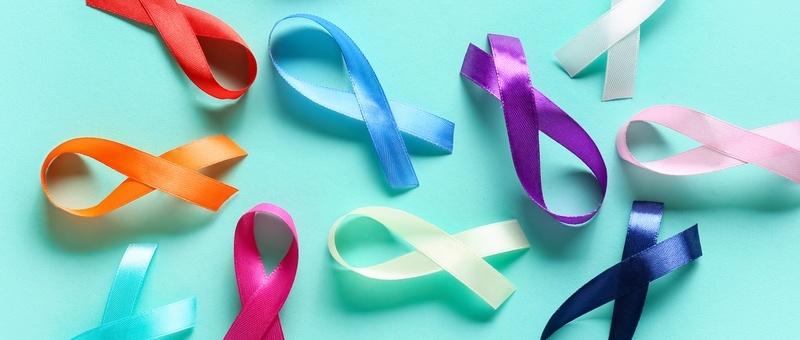
Less survivable cancers are more likely to have late diagnoses
Peer reviewed by Dr Sarah Jarvis MBE, FRCGPLast updated by Amberley DavisLast updated 4 Mar 2022
Meets Patient’s editorial guidelines
- DownloadDownload
- Share
- Language
- Discussion
The six less survivable cancers make up around half of all cancer deaths in the UK. However, these cancers are far more likely not to be diagnosed until they have reached later stages. Survival rates could significantly improve if there is more public awareness of symptoms and better diagnostic tools for GPs.
In this article:
Continue reading below
Less survivable cancers
A late stage cancer diagnosis has a significant impact on the chances of survival; the earlier the diagnosis, the less chance there is that the cancer has spread. Generally, for all types of cancer, this means better treatment options and higher survival rates.
However, the latest data from the National Cancer Registration and Analysis Service (NCRAS) expose a cancer healthcare gap. It appears that less survivable cancers are much more likely to be diagnosed later and in emergency settings (such as A&E) than more survivable cancers.
Sadly, these findings suggest the prevalence of these late stage cancer diagnoses plays a huge part in the devastating mortality outcomes of thousands of people each year. These disproportionate late stage cancer diagnoses make it much harder or impossible to treat people, especially given how rapidly the cancer cells can spread.
The Less Survivable Cancers Taskforce (LSCT) raises awareness of these six cancers
According to Cancer Research UK, these less survivable cancers have an average five-year survival rate of just 16%. Over 90,000 people will be diagnosed with one of them each year, and they account for over 67,000 deaths every year. This mortality rate makes up roughly half of all cancer deaths in the UK.
Late stage cancer diagnosis
"Although overall cancer survival rates are increasing, we are not seeing the same improvements in prognosis for patients diagnosed with less survivable cancers, including those of the pancreas, lung, stomach, liver, brain and oesophagus," explains Anna Jewell, chair of the LSCT.
The trouble is that these six less survivable cancers can be notoriously difficult to diagnose. The LSCT is calling for more research to develop better diagnostic tools and processes and help to close the so-called "deadly cancer gap".
Nonspecific symptoms
"The reasons for later diagnosis are varied but a significant factor is that the symptoms of less survivable cancers tend to be nonspecific and most of the general public are unaware of them," says Jewell.
"They do not present with noticeable lumps or changes in moles. For example, the typical symptoms of pancreatic cancer are indigestion, abdominal pain, and unexplained weight loss. For brain tumours, two of the most common symptoms are headaches and nausea. This ambiguity, combined with a lack of awareness of symptoms, often means that patients delay seeking medical help."
It's understandable that these common symptoms are often ignored. However, raising awareness of them in relation to the deadliest cancers could have a hugely positive impact.
UK data released by the LSCT in 2021 indicate that public awareness of the deadliest cancer symptoms is as low as:
4% for pancreatic cancer.
5% for liver cancer.
10% for stomach cancer.
11% for oesophageal cancer.
21% for lung cancer.
37% for brain cancer/tumours.
Jewell explains that typical symptoms will vary, but the red flags for less survivable cancers could include any of the following:
Indigestion.
Abdominal pain.
Unexplained weight loss.
Unexplained tiredness.
Headaches.
Nausea.
"The key message is to seek medical help swiftly if you notice anything unusual for you."
Multiple GP visits
"We also know that people with these cancers can end up going to their GP multiple times with these vague symptoms before they are diagnosed," adds Jewell.
This was the case for Bryony Thomas, who was diagnosed with pancreatic cancer in December 2019: "There is a systemic failure at play here. My chances of having pancreatic cancer, as someone under 45, were vanishingly rare. It's not surprising that it wasn't the first thought."
Jewell believes a large part of the problem is that, for many of these cancers, we don’t have simple tests that could be used to help GPs decide if these symptoms could indicate cancer. As screening programmes for less survivable cancers are either limited or non-existent, fast routes to diagnosis aren't clear for GPs.
Continue reading below
Improving late stage cancer diagnosis
"Less survivable cancers have been left behind for far too long and have not been prioritised by Government cancer policy or in awareness campaigns," says Jewell. "We urgently need investment in nationwide symptom awareness campaigns to help people spot symptoms and encourage them to seek medical help."
In order to support this effort, the LSCT launched its first-ever Less Survivable Cancers Awareness Day in January 2022. However, this is only half the battle against late stage cancer diagnosis: there is an urgent need to improve diagnostic techniques and treatments.
Thomas reflects on the need for better questionnaires: "I think a flight checklist should exist for persistent fatigue. I would include diet, appetite, stomach, and poo in an end-to-end set of questions about digestion. These also need to be in plain English with no talk of bowel movements, tummy troubles, or stools. Instead, we need to be asked plainly about poo - what colour it is, what shape it is, what consistency it is, whether it flushes away, and so on.
"This could be done as a questionnaire, just like the Fatigue Severity Scale (FSS) which was used to assess me for sleep apnoea. When that came back clear, they just stopped looking for answers but a second set of questions about my digestion and a poo sample might well have identified my diagnosis sooner - perhaps before the cancer had spread to my lymph nodes. This would have made my procedure much simpler and significantly reduced the chances of recurrence."
Greater research for early cancer signs
For Jewell, greater research is critical if GPs are going to be provided with the tools and tests they need to pick up early signs of cancer. This includes increased access to rapid diagnostic centres for vague symptoms for their patients.
However, despite the need, there is an inequality in cancer research investment: "In the UK, between 2002 and 2014, the less survivable cancers received just 16.6% of the research funding of more survivable cancers," Jewell explains.
"If we invest more in less survivable cancers then we believe we can drastically increase life expectancy as well as improve the quality of life of thousands of people."
Earlier cancer diagnosis and survival rates
Delays in diagnosis lead to much poorer outcomes for people because they become much harder or impossible to treat at later stages.
Current five-year survival rates for less survivable cancers:
Pancreatic cancer - 7.8%.
Brain cancer/tumours - 12.5%.
Liver cancer - 13%.
Oesophageal cancer - 17.5%.
Lung cancer - 19.7%.
Stomach cancer - 23.4%.
While these statistics can feel scary, more investment in diagnostic methods will bring hope that these survival rates can significantly improve. Earlier diagnosis is typically considered to be at stages 1 and 2 where the cancer cells haven't spread from where they started. Stage 3 (where the cancer has spread to surrounding tissues and/or lymph nodes) and stage 4 (where the cancer has spread to at least one other organ) are much harder to treat.
One of the NHS key goals for cancer care is that 75% of people with cancer will be diagnosed at stage 1 or 2 by 2028. More research and investment into the less survivable cancers is required if these six cancers are to meet this target.
Patient picks for Information about cancer

Cancer
What it's like to live with cancer fatigue
Cancer fatigue is a common and debilitating symptom of cancer and cancer treatment. Each person's experience of cancer fatigue is unique, but hearing each other's stories can be valuable and comforting.
by Amberley Davis

Cancer
Cancer symptoms you should never ignore
When it comes to unexplained medical symptoms, it's easy to bury your head in the sand and ignore them, especially if they're a bit embarrassing to discuss. But getting them checked out by a doctor could end up saving your life. Here are the cancer symptoms you should never ignore.
by Lynn Stephen
Continue reading below
Article history
The information on this page is peer reviewed by qualified clinicians.
4 Mar 2022 | Latest version
4 Mar 2022 | Originally published

Ask, share, connect.
Browse discussions, ask questions, and share experiences across hundreds of health topics.

Feeling unwell?
Assess your symptoms online for free
Sign up to the Patient newsletter
Your weekly dose of clear, trustworthy health advice - written to help you feel informed, confident and in control.
By subscribing you accept our Privacy Policy. You can unsubscribe at any time. We never sell your data.